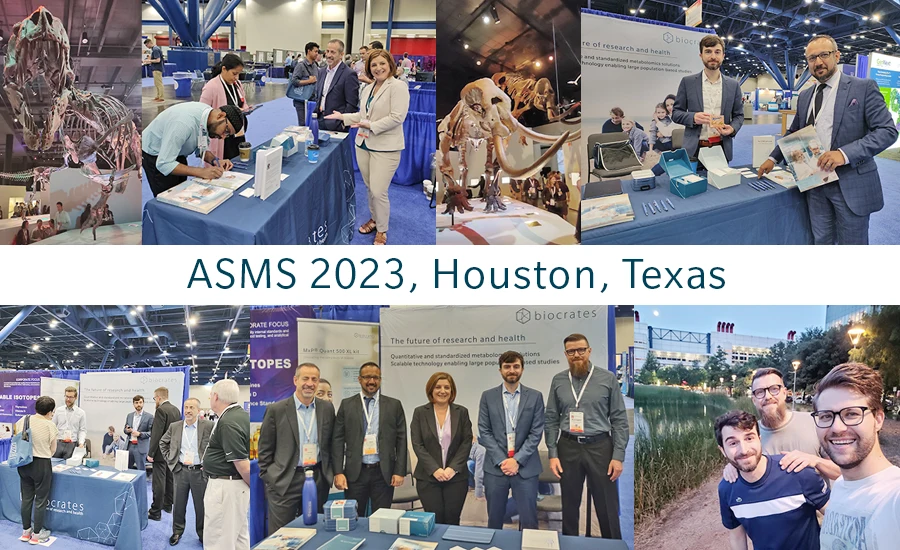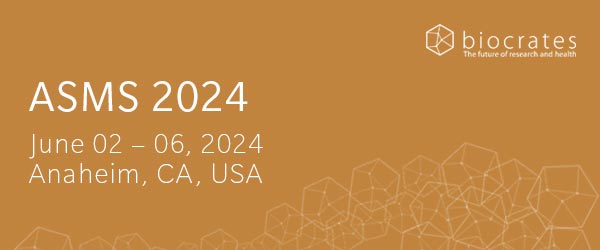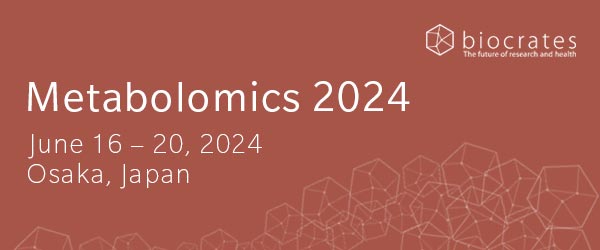Back in the saddle
After a relatively quiet post-covid ASMS conference in 2022, with noticeably less participants from outside North America, this year’s conference was back in full force. Over 5,000 people from across the mass spectrometry community representing all continents met together in the George R. Brown Convention center in Houston, Texas, to discuss innovations, solutions, and trends under a multitude of talks and posters. The enormous convention hall hosted more than 170 exhibitors surrounded by more than 700 “fresh” posters every day from Monday through Thursday. From graduate students and postdocs to senior researchers, vendors, and other solutions providers, the scope of the conference provided a perfect event to network and discuss applications under the broad scope of mass spectrometry-related topics.
biocrates experience
We were thrilled by the overall interest in metabolomics and specifically the high awareness and reputation of the biocrates services and kit products among those in attendance. It was a pleasure interacting with the large number of attendees coming from all parts of the world who stopping by our booth.
We were able to have many valuable discussions with people and answer lots of technical questions. Several of our experts were present at the conference and explained the details of our technology and how our kits work. The integrated internal standards, software guided automated workflow, and comprehensive metabolite coverage were very appealing and our decentralized approach to providing standardized metabolomics solutions gives our users control over their own data. Of course, visitors to the booth especially enjoyed the giveaway pens, notebooks, lunchboxes, and thermos bottles.
We were particularly thankful to the number of visitors who completed our survey about metabolomics solutions and research interests which covered questions related to metabolites and indicators of interest, technology and software solutions, as well as researchers’ values, needs, and struggles when working with metabolomics.
We appreciated all the suggestions and feedback we received to expand and improve our portfolio for metabolomics solutions. The results confirmed the value and ease-of-use of our products, and that our technology already meets the needs of many researchers. Our new cloud-based workflow manager WebIDQ perfectly aligns with the trends and increasing number of cloud-based innovations across all application fields. We will continue to innovate and improve our kits and services to tackle solutions and provide high-quality products that resonate with user interests and needs.
In addition to the exhibitor activities, we featured two posters related to our technology. One poster demonstrated the performance and comparability of our most comprehensive MxP® Quant 500 XL kit across mass spectrometer platforms. The results showed high reproducibility and correlation across all laboratories and mass spectrometers used. The other poster applied metabolomics and lipidomics profiling to bioprocessing using our AbsoluteIDQ® p400 HR kit on the Thermo Orbitrap Exploris™ 480 MS system.
It was demonstrated that proper optimization and validation can provide reproducible, accurate, and broad targeted metabolomics profiling for bioprocessing samples and cell culture media optimization. Since that time, we further expanded the AbsoluteIDQ® p400 HR to the Exploris™ 120 to 240 systems.
Omics now and tomorrow
As in the previous years, proteomics topics dominated the conference, followed closely by metabolomics, with improved (and automated) workflows, increased coverage, and better methods for quantification. Within the scope of metabolomics, “exposomics” and the study of the exposome has become increasingly relevant and popular. Identification and annotation of the vast number of molecules that we are exposed to and their implications on human health was of high interest. It was mentioned that only 30% of human diseases can be attributed to genetics, and approximately 70% of diseases are caused by the complex interaction of the exposome (including nutrition, pesticides, PFAS, toxins, etc.) and epigenetics. There will be a lot of movement over the next years in exposome studies.



